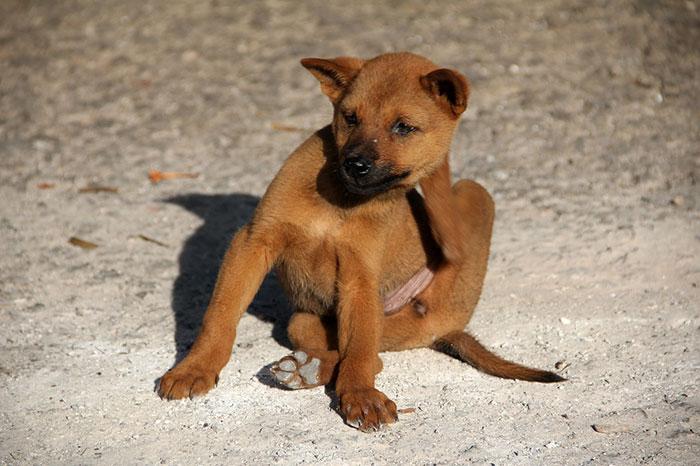
Don’t DEET that Dog
Tuesday, August 1, 2017
While people may use DEET products to repel bugs, do not use it on your pets. DEET can cause significant clinical signs in companion animals.
DEET is common in most products used for mosquitoes, ticks and deer fly control in humans. If you hike in our great outdoors, you probably have used a DEET product.
According to the American Society for the Prevention of Cruelty to Animals’ Animal Poison Control Center, some pet owners will apply pest repellant products to their pets. Or in some cases, the pets may get into containers that are left within their reach.
Many over-the-counter pest repellants contain DEET, which is an N,N-dialkyamide insecticide found in more than 500 products in varying concentrations.
If a pet is sprayed in the eyes, red eyes and tearing and runny eyes may occur. Pets may become quiet and refuse to eat or participate in activities.
Ocular exposures warrant flushing of the eyes with a sterile saline product for at least 15 minutes. These products are easily purchased at your local pharmacy.
Dogs and cats that inhale DEET products may experience inflammation of their airways and labored breathing or shortness of breath. Consult with your veterinarian immediately if your pet demonstrates these signs.
Another clinical sign commonly seen with DEET exposure is GI upset. With a high concentration product (80 percent or more DEET), you may see wobbly gait, disorientation, tremors and seizures.
If your pet received DEET exposure to its skin, treatment consists of bathing with a liquid dishwashing detergent to remove the product. Dermal exposures may warrant a trip to your veterinarian if there is significant irritation present.
You can give your dog or cat milk to dilute the product in the GI tract if they are NOT vomiting.
Consult with your veterinarian about the ideal products for the control of mosquitoes, ticks and other external parasites. It is just as important to protect your pets as it is to protect yourself during a hike.
Avoid outdoor activities during times of the day when insects are most active. Mosquitoes are active in early morning and evening. Flies are pesky throughout the day.
Do not use DEET or DEET containing products on your pets. If your pet is exposed to DEET, contact your veterinarian immediately for the best advice.
by Elisabeth J. Giedt, DVM
Veterinary Viewpoints is provided by the faculty of the OSU Veterinary Medical Hospital. Certified by the American Animal Hospital Association, the hospital is open to the public providing routine and specialized care for all species and 24-hour emergency care, 365 days a year.
